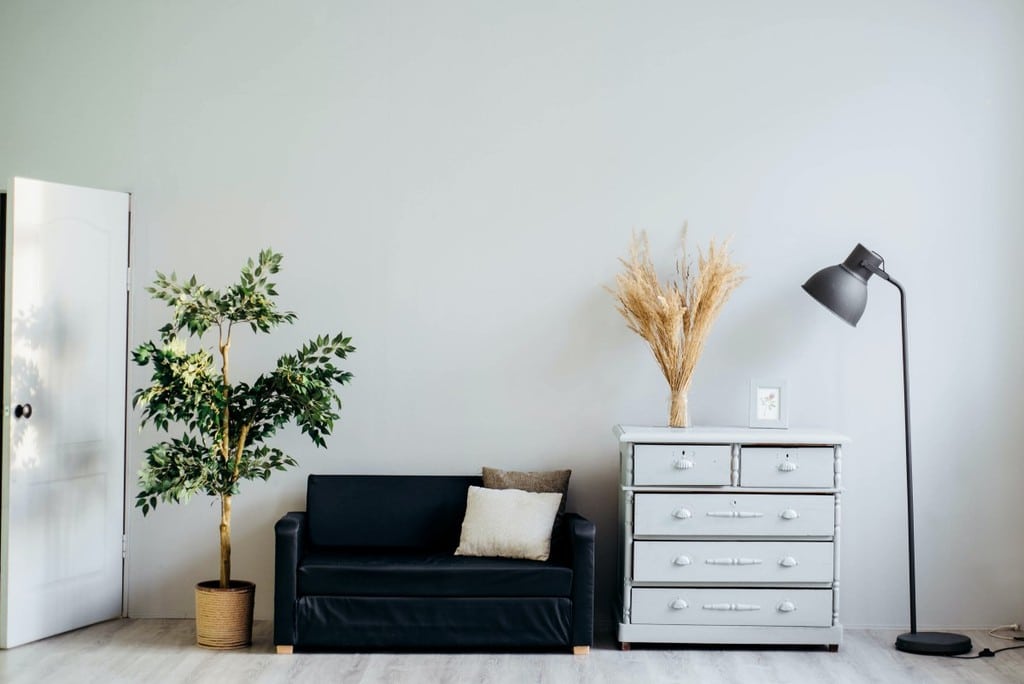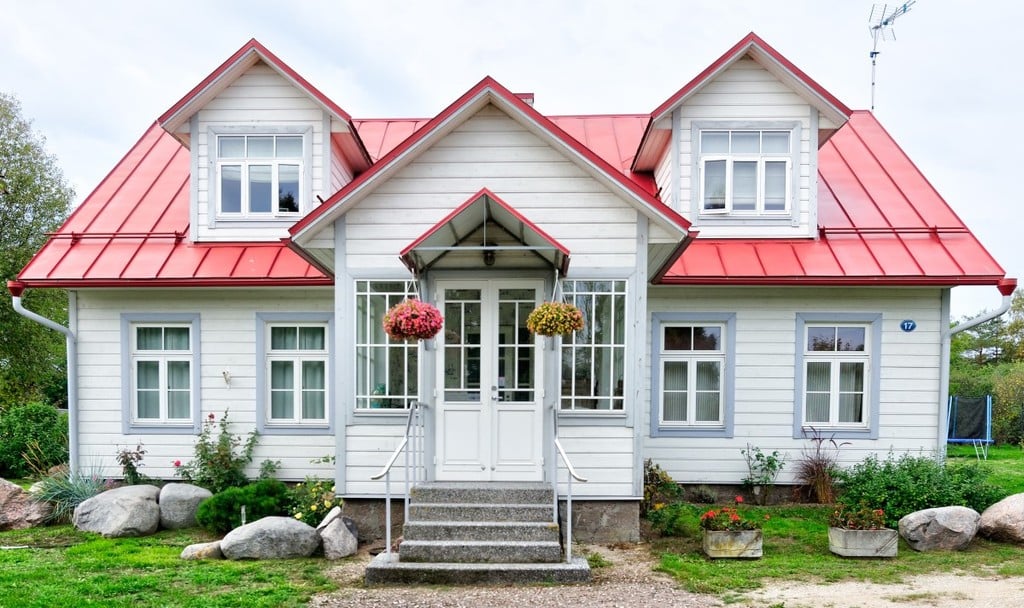In this article:
- What are rent-to-own homes?
- How is renting to own different from buying a house?
- Pros and cons of renting-to-own
- Types of rent-to-own contracts
- Steps to buying a rent-to-own home
- Important tips
In the current real estate market, some people are starting to explore less traditional options for owning a home. Rent-to-own lease agreements have become increasingly popular because there’s a growing gap between those who are having trouble selling their home and those who can’t afford to buy one.
First-time homebuyers have more home-buying options than you think, even though the market has created a highly competitive climate for aspiring homeowners. While the prospect of so many home buying purchase options can seem overwhelming, you do have other options for methods of buying a house if you’re not ready to take the plunge.
Rent-to-own homes have benefits and drawbacks for both the tenant/buyer and the landlord/seller. Read this helpful tenant and landlord guide to learn rent-to-own tips and everything you need to know about lease purchases and rent-to-own home selling and buying options.
What are rent-to-own homes?
Rent-to-own means someone rents your property like any traditional lease, but part of their payments go towards a downpayment for the house. When the agreed-upon date arrives, the tenant gets the first bid on your home and, in some cases, has to purchase the property contractually.
There’s a contract to establish standard rental terms, with an addition of either a purchase option or purchase guarantee. Rent-to-own benefits both the seller and buyer because the landlord can be confident they’ll have a buyer for the property, the buyer will treat the house with care, and the tenant will know that their rent money is an investment.
Ideal rent-to-own candidates can successfully apply for a mortgage after the lease agreement term is up. However, not everyone is in a position to qualify for a mortgage. That’s why people consider rent-to-own agreements in the first place. You may be able to use the rental period to your advantage by working to increase your credit score over that one to three-year period. The tenant’s credit score is critical to getting a reasonable mortgage rate. You can find your current credit score through the credit bureau website.
How is renting to own different from buying a house?
It’s important to distinguish between buying a house and rent-to-own agreements. To buy a house, someone has to put forward a downpayment and secure a mortgage from the bank or other financial institution or buy a property outright.
When someone rents to own, tenants pay the mortgage as rent — each month, the portion of the amount they pay the landlord goes toward ownership of the home. The sum accumulated after the set time will eventually be the downpayment.
From there, the future buyer may still have to take out a mortgage or get a loan to assume ownership. Still, the rent-to-own agreement allows them to put their money toward obtaining an asset rather than paying into a rental property for that they aren’t acquiring equity.
Pros and cons of renting-to-own

- When you can’t pay upfront for a downpayment or don’t qualify for a mortgage, rent-to-own agreements offer a solution.
- When you find the home you want to buy, this agreement allows you to have the first say before anyone else can make a bid.
- You get to know the home, including the repairs and renovations needed and anything that needs replacing.
The cons of rent-to-own homes for buyers:
- With the rent-to-buy option, you may be charged higher rent than other renters in the market since part of your rent is going towards a down payment.
- The house could deplete in value throughout the rental agreement.
- Rent-to-own agreements sometimes have caveats.
- When the time comes to buy the house, even if your rent-to-own agreement has accumulated enough for a downpayment, you may not qualify for the mortgage necessary to see the purchase through.
The pros of rent-to-own homes for sellers:
- An ideal rent-to-own candidate will treat your home with care because it’s in their best interests to keep it well-maintained.
- Your house may sell for a higher price with a rent-to-own agreement, as you could have more leverage in the negotiating process.
- It will be an extra revenue stream if you don’t need to sell the house immediately.
The cons of rent-to-own homes for sellers:
- If the tenant is unable or chooses not to buy the home at the end of the rent-to-own agreement, you’ll have to start from scratch.
- It is a long-term commitment that handcuffs you if you want to make another major purchase and cannot come up with the funds because you are waiting for this contract to be complete.
- You’ll have to be very careful in your selection process and view the tenant as a potential buyer rather than someone just renting the space.
- The tenant will likely get a home inspection, which may reveal extensive work in your home.
Types of rent-to-own contracts

You should select your option depending on the real estate market and your situation, whether a seller or a potential buyer.
Lease option
With a lease option, the tenant pays an “option fee” to the landlord. It’s this payment that allows them to have the opportunity to buy at the end of the lease.
The written agreement will lay out the terms of the rent-to-own agreement, including how much of the lease option fee and the monthly rent will go toward the property’s purchase price. You can negotiate these terms before signing any agreement.
When the lease is up and it’s time to bid on the house, you can still walk away and leave the option fee and your rent credit behind.
Lease-purchase option
A lease-purchase rent-to-own agreement is similar to the lease option in that a predetermined amount of money goes toward the eventual ownership of the property. It usually accumulates enough funds to cover the down payment, but you’ll still need to qualify for a mortgage.
With a lease-purchase contract, the seller and potential buyer agree on a fixed purchase price for the home before the commencement of the terms. The tenant is obligated to honor the agreement after the rental period. Before signing an agreement like this, it would be prudent to check with a banking professional to see if you’ll be able to get a loan when the time comes, whether in one year or three.
If things fall apart, the landlord can sue for breach of contract if you aren’t able or willing to follow through with the purchase.
Steps to buying a rent-to-own home
There are several key pieces of information generally included in arranging a rent-to-own home contract that you should always consider before making it official.
Agreeing on the purchase price
The contract should specify the terms of the agreement and whether you’re obligated to buy the home or simply have the option to do so. Still, the negotiations begin with agreeing on the purchase price.
Whether you’re the seller or the buyer, it’s best for everyone if there’s a home inspection done. The house’s value will largely depend on its integrity, and if any major repairs or renovations are needed, it will impact the potential sale price.
Rent payments
Read the contract carefully and have another set of eyes on it as well, whether it be a realtor, lawyer, or someone from the credit institution. You need to make sure it mentions rent payment and how much of that payment will affect the eventual purchase price.
For example, if your rental payments are $1500 each month, $250 per month goes toward your down payment. If the home costs $250,000, you will save up to $9000 over a three-year rent-to-own lease agreement.
The contract should also explain the home maintenance terms and who is responsible for the maintenance of the property.
Buying the property
The contract will specify the purchase terms and what happens if the tenant is willing to become a homebuyer.
Remember, there are two separate rent-to-own agreements with distinct rules and caveats. Know which one you are signing. The main difference to remember between the lease option and the lease-purchase option is that with the lease-purchase rent-to-own contract, you are obligated to buy at the end of the lease.
Mortgage
As the rental term for the property nears an end, you’ll want to shop around for a mortgage as you would with any other home purchase.
It would be wise to look into getting a mortgage early and see if you would qualify in one to three years, depending on how long your rent-to-own contract is. Because you may have saved up enough rent payments for the down payment, you most likely won’t have enough to buy the property outright.
That’s why you need a mortgage. The rent-to-own agreement is a grace period to save enough for a downpayment for the home you’re living in, but if you cannot secure a mortgage or buy it outright, you may be penalized when the rent-to-own agreement comes to an end.
Important tips

- If you’re unsure whether to buy the home, a lease option might be better.
- If you think you won’t qualify for a mortgage after the rent-to-own term, a lease option gives you a way out.
- Get pre-approved for a mortgage based on the purchase price listed in your rent-to-own lease to ensure you can afford the property. If you don’t think you’ll be approved, the rent-to-own contract might not suit you.
- Inflation might raise the rental price by the time the lease is up. Make sure you factor this in before you agree on how much rent goes toward your down payment.
- If you can’t save a lot of money during your rental period, you may be able to purchase the house with a loan — you just need to be pre-approved before you sign the rent-to-own agreement, as not everyone can afford this option.
Get a home inspection

It’s vital to consult a home inspector before agreeing to any contract or setting a purchase price. When you have the home checked out by a home inspector before you sign the contract or decide on a purchase price, know what the property is worth and how much money you will need to put into it.
A home inspector will point out any damage, significant flaws, and steps to get the home up to code. Repairs and renovations can get pricey, so make sure you know what you’re signing up for by bringing in a professional opinion.
Real estate attorney
Whatever method of buying a house you choose, a real estate attorney will help you prepare and review all the paperwork to be signed, be there on the closing date to represent your best interests, and assist in navigating the local laws.
They’ll help you specify essential details like who is holding onto the down payment money, make sure the contract meets standards, and that you consider all tax factors.
Have a real estate attorney look at your potential rent-to-own lease to review the fine details and ensure you haven’t missed anything. There is no template for the best rent-to-own agreement — you must create one with the seller that works well for both parties. An attorney can mediate that process, protecting you and your assets as you prepare to buy your first home.

